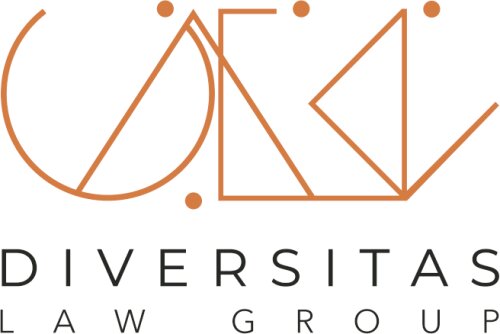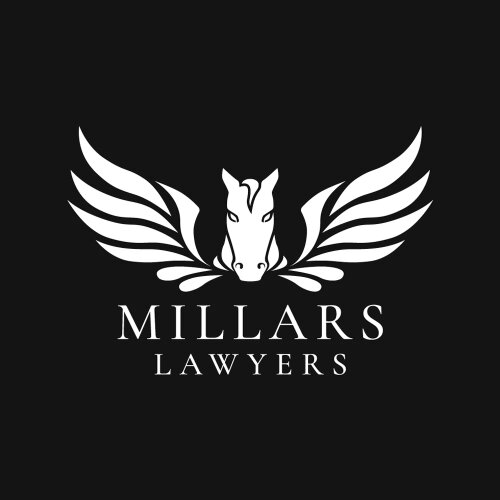Best Natural Resources Lawyers in London
Share your needs with us, get contacted by law firms.
Free. Takes 2 min.
List of the best lawyers in London, Canada
About Natural Resources Law in London, Canada
Natural resources law in London, Canada, encompasses a wide range of legal issues related to the management, use, and protection of natural resources, including water, minerals, forests, and wildlife. With a rich array of natural resources, Canada places a strong emphasis on sustainability and environmental protection. In London, Ontario, the focus often is on balancing urban development with the conservation of local natural habitats, ensuring that the city's growth respects ecological constraints and community interests.
Why You May Need a Lawyer
There are several scenarios where an individual or a business may require legal assistance in the field of natural resources:
- Disputes over land use or conservation easements.
- Commercial licensing and regulatory compliance for natural resource exploitation.
- Environmental assessment requirements for new developments.
- Mineral rights and resource extraction agreements.
- Water rights and usage disputes.
In these instances, a lawyer can help navigate complex regulations, represent your interests in negotiations, and ensure compliance with applicable laws.
Local Laws Overview
London, Ontario, is subject to both provincial and federal natural resources laws. Key regulations include:
- Environmental Protection Act: Governs pollution prevention and the control of hazardous materials.
- Ontario Water Resources Act: Regulates water quality and the management of water resources.
- Mining Act: Covers the rights and responsibilities of prospectors and the conduct of mineral exploration and extraction.
- Planning Act: Ensures land use planning considers sustainable development and the preservation of natural resources.
Frequently Asked Questions
1. What is considered a natural resource?
Natural resources include water, minerals, forests, and wildlife-essential elements of the environment that support ecological balance and economic activities.
2. How are mineral rights handled in London, Ontario?
Mineral rights can be separated from surface land ownership, and obtaining exploration or extraction permits may require negotiation and compliance with provincial regulations.
3. Are there specific conservation areas in London?
Yes, London has several designated conservation areas aimed at preserving natural habitats and providing public recreational space, subject to specific regulatory oversight.
4. What role do Indigenous communities play in natural resource management?
Indigenous communities have a significant role, as Canadian law recognizes their rights to consult and benefit from the development of natural resources on their traditional lands.
5. What are conservation easements?
Conservation easements are legal agreements that restrict the use of a piece of land to protect its conservation values, typically enforced by local conservation authorities or trusts.
6. Do I need a permit to drill a water well?
Yes, you typically need a permit to drill or operate a well. The Ontario Water Resources Act outlines the requirements for permits regarding water usage.
7. How does climate change legislation impact natural resource laws?
Climate change laws in Canada aim to reduce greenhouse gas emissions and promote sustainable practices, influencing how natural resource projects are assessed and approved.
8. Can a private company own large tracts of forest in London?
Ownership of large forested areas is possible, but activities such as logging are subject to strict regulations to ensure sustainability and environmental protection.
9. What is an environmental assessment?
An environmental assessment is a process used to evaluate the environmental effects of a proposed project, including alternatives, aimed at ensuring informed decision-making.
10. How do I report an environmental violation?
Environmental violations can be reported to the Ministry of the Environment, Conservation and Parks through their spill reporting hotline or local offices.
Additional Resources
For more information or assistance, consider the following resources:
- Ministry of Natural Resources and Forestry
- Ontario Ministry of the Environment, Conservation and Parks
- Ontario Environmental Commissioner’s Office
- Local conservation authorities, such as the Upper Thames River Conservation Authority
Next Steps
If you require legal assistance with a natural resources issue, it's recommended to consult with a lawyer specializing in environmental or natural resources law. Start by gathering all relevant information about your issue, identifying the regulations that may apply, and seeking a professional legal opinion. You can contact the local Law Society of Ontario for a referral to a qualified lawyer in your area.
Lawzana helps you find the best lawyers and law firms in London through a curated and pre-screened list of qualified legal professionals. Our platform offers rankings and detailed profiles of attorneys and law firms, allowing you to compare based on practice areas, including Natural Resources, experience, and client feedback.
Each profile includes a description of the firm's areas of practice, client reviews, team members and partners, year of establishment, spoken languages, office locations, contact information, social media presence, and any published articles or resources. Most firms on our platform speak English and are experienced in both local and international legal matters.
Get a quote from top-rated law firms in London, Canada — quickly, securely, and without unnecessary hassle.
Disclaimer:
The information provided on this page is for general informational purposes only and does not constitute legal advice. While we strive to ensure the accuracy and relevance of the content, legal information may change over time, and interpretations of the law can vary. You should always consult with a qualified legal professional for advice specific to your situation.
We disclaim all liability for actions taken or not taken based on the content of this page. If you believe any information is incorrect or outdated, please contact us, and we will review and update it where appropriate.











